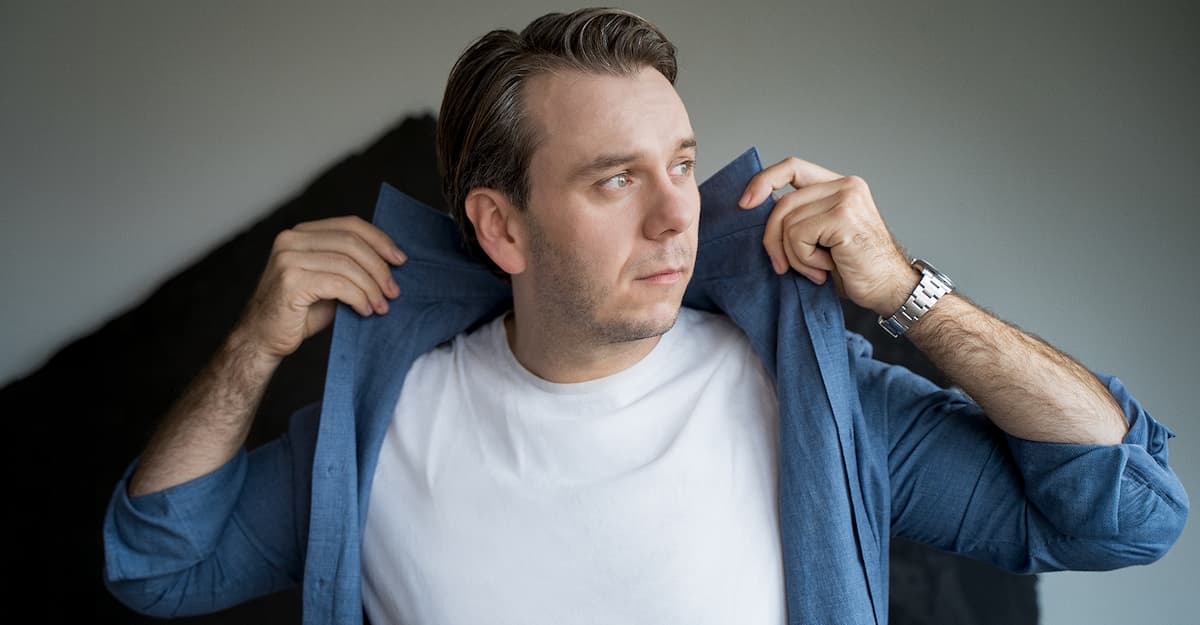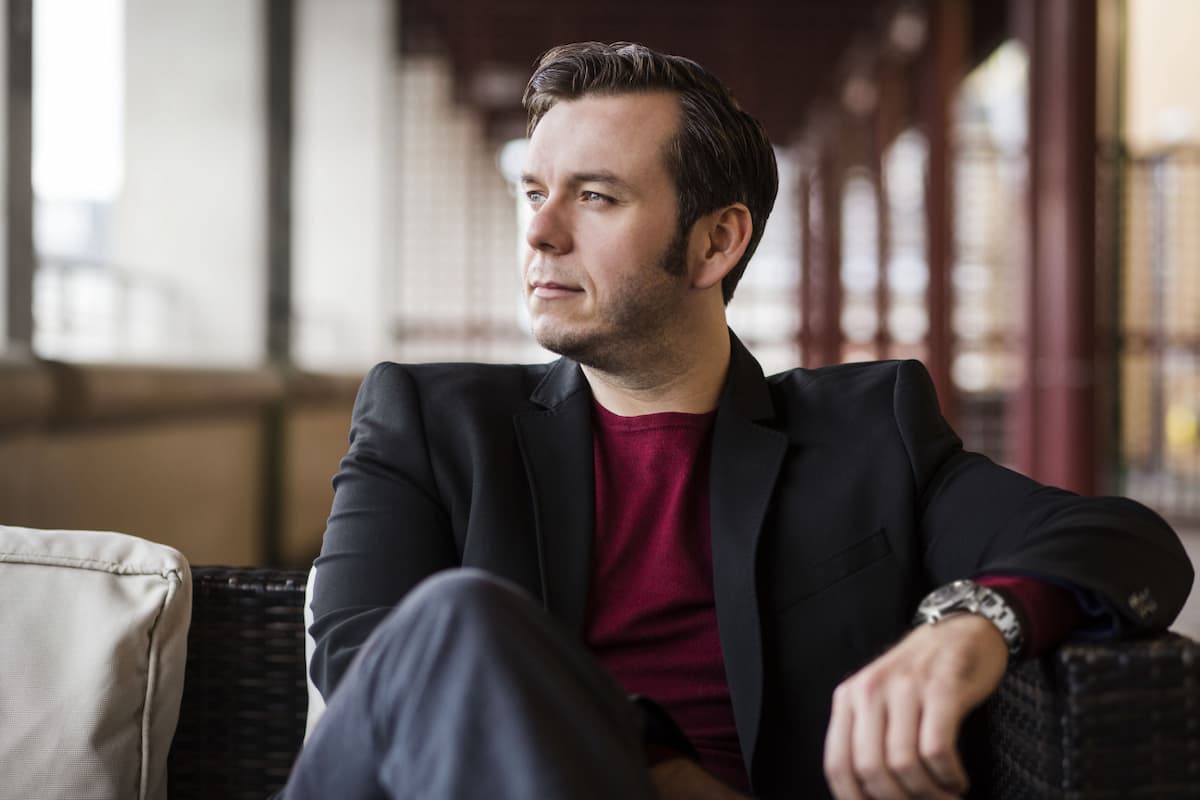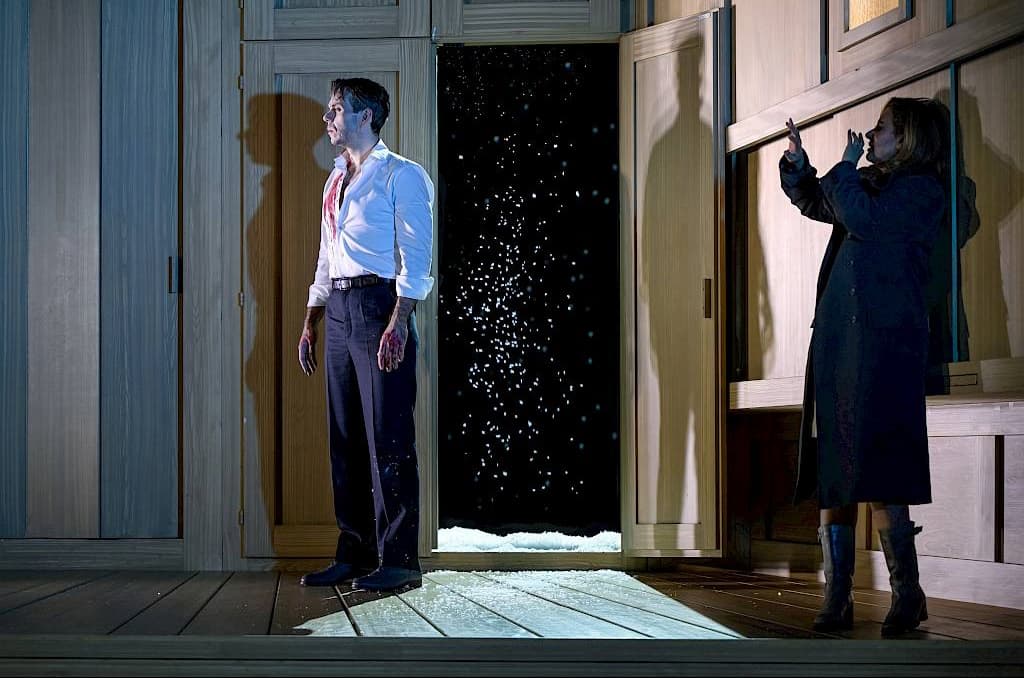Considered by many “the most beautiful tenor voice since Luciano Pavarotti,” Benjamin Bernheim is certainly one of the most exciting tenors to emerge onto the operatic stage in recent years. His exquisitely beautiful, richly coloured lyric voice simultaneously projects power, intensity, sweetness, sensuality, and nobility of feelings. Bernheim is a thinking tenor who examines his characters in painstaking depth, and he staunchly defends his love for the French lyrical repertoire.
Benjamin Bernheim Sings Gounod’s Romeo et Juliette, “Ah Leve toi soleil”
A House full of Singers

Benjamin Bernheim © Edouard Brane
Born on 9 July 1985 in Paris, Bernheim grew up in Geneva in a house full of opera singers. His grandmother was the mezzo Nicole Buloze, his father the baritone Antoine Bernheim, and his mother became a singing teacher, forgoing an operatic career she had worked at very hard. As Benjamin remembers, “my parents tried to break through for a long time, but without ever succeeding. So, I saw the other side of the singing profession: the pain, the frustration, the fear of not being chosen.”
Initially, Benjamin took violin and piano lessons before starting his voice studies at the age of 10 at the local conservatory. “For a long time,” he explained in an interview, “I loathed this milieu which, as a child, stopped me sleeping at night as the domestic atmosphere of frustration and insecurity had a profound effect on me.”
Giuseppe Verdi: Don Carlos – Act II: Dieu, tu semas dans nos ames (Benjamin Bernheim, tenor; Florian Sempey, baritone; Bologna Teatro Comunale Orchestra; Frédéric Chaslin, cond.)
Most Important Teacher: Gary Magby

Gary Magby
Feeling profoundly ambivalent towards his own gifts as a singer, Benjamin left home at 18 in search of himself. He enrolled at the Lausanne Conservatoire to study in what he calls “a stress-free and thorough environment.” His first and most important teacher was Gary Magby, who completed his musical training at the Boston and New England Conservatories. According to Berheim, “Magby had the wisdom, rather than teaching me how to sing a note, to teach me how to let my body sing it in peace and my voice not be hindered by parasitic thoughts.”
Magby instilled much-needed confidence by telling Bernheim that his voice and mind had to be in agreement. “Very often, there are two voices,” according to Magby, “that don’t always want to go in the same direction.” Curiously, Bernheim didn’t really like singing, but singing seemed to like him as “it came to me without effort.” What Bernheim did enjoy, was the discovery that singing involved the wonderful aspect “of telling stories.”
Benjamin Bernheim Sings Tchaikovsky’s Eugene Onegin, “Kuda, kuda, kuda vi udalilis”
Joining the Insurance Business

© Richard Boll
Bernheim did graduate from the Lausanne Conservatoire and joined the Opera Studio at Opernhaus Zürich for the 2008/09 season. However, he seriously disliked the idea of being an opera singer. As such, he joined the real estate and banking business of a family member. He simply wanted to do something different and “didn’t want to be a singer anymore.” Abandoning his idea of being an opera singer for several months, “was a sort of therapy for me, because I stopped being worried about my flaws and problems.”
For Bernheim, too many people told him about his voice and what he should be doing with it. Some suggested to sing only German repertoire, other thought he would make a good countertenor. As he remembers, “in this business, there are always too many opinions. And among this plethora of opinions, there are always one or two that are right. But discovering which ones are correct is very difficult.”
Luigi Cherubini: Ali-Baba, ou Les quarante oleurs – C’est de toi, ma Delie (Benjamin Bernheim, tenor; Bologna Teatro Comunale Orchestra; Frédéric Chaslin, cond.)
The Prodigal Son

Benjamin Bernheim in Massenet’s opera Werther
For Bernheim, the world of real estate and finance is totally different. “You meet people who have nothing to do with the world of music and your studies, and for whom music, if they bother with it at all, is viewed as entertainment.” Benjamin thoroughly enjoyed not being treated as a singer but just another person joining the group. “It was a totally new kind of life and very interesting.”
In the end, and lucky for us, the prodigal son returned to join the Opernhaus Zürich in 2010. While singing a lot of secondary roles, Bernheim already knew that he wanted to sing Alfredo, Des Grieux, and Rodolfo, and he prepared for all those roles ahead of time. He still considered patience the most important factor in his operatic career. “You cannot measure an opera singer with statistics; it is a matter of taste, and success has a lot to do with chance and timing and instinct.”
For more of the best in classical music, sign up for our E-Newsletter
